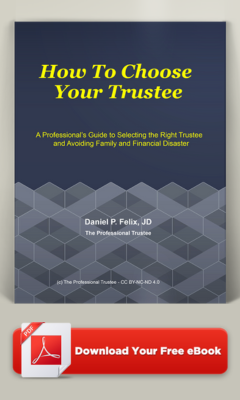I find giving an interview helpful in distilling my thoughts and experiences on successful intergenerational transition, especially so when the interviewer is thoughtful and passionate.
So, here are some highlights from my interview by Jeff Bechar, principal of ComforCare’s Aging Well in Chicago. The time sailed by fast!
CLARITY is the first goal. Clarity for each of us individually in both understanding the practical landscape of how things work — legal, financial, health, spiritual, emotional and familial — as well as deciding what do you want and need.
We get more than bonus points for dealing in advance with the really difficult issues, such as when it’s time to let go. For one example, getting clarity about when we’re giving up driving. Have you thought about at what point you will give up the keys to the car? And who you’ve empowered to tell you when they think it’s time?
Beyond personal clarity is getting your family and representatives to understand your vision and plans. Accomplishing that requires…
CONVERSATION! Sharing our wishes and vision allows us to make sure others understand what we want, AND it helps us to understand the impact of our decisions. After all, knowing the impact of our decisions is the true reality test of whether what we think is a gift will be received that way.
There are individual decisions over these conversations, including when and to what extent to share with the family and each family member. One idea may be to achieve family-wide consensus.
Advance conversation can come both informally, such as a spur-of-the-moment expression, as well as in the more formal let’s-sit-down-once-a-year-and-talk settings. As difficult as these conversations can be, they’re usually easier in advance than in crisis.
So, assuming everyone’s on the same page, the only thing in the way is the practical ability, also known as…
COMPETENCE! It’s one thing to have these wonderful plans and visions, it’s another thing to get it done.
Do your representatives have the time, knowledge and skills to get them done? And do they know how to collaborate successfully with your other beneficiaries, advisors and stakeholders?
The more prepared the family and that family-member representative are, the more likely there’ll be a successful transition: smooth, efficient and painless.
And, you can accuse me of having a bias, but employing an impartial, knowledgeable and skilled professional fiduciary is an easier path to success, in part because it lets family members be family for each other, and not have to serve also as the keeper of the cash or being the boss of your little brother.
But whoever is serving for you when you can’t take care of yourself, remember that doing the right thing technically is essential, but not enough by itself for success. Rather, the additional key often is how your representative connects with your family, that is, the beneficiaries whom you want to benefit. An oft-overlooked ingredient in that mix is…
COMPASSION. There’s so much at odds with a successful outcome. Our culture is naïve in its general denial of the inescapability of disability and death and lack of preparedness. Further, our culture harbors hostility in its emphasis on both entitlement AND control as well as instant gratification.
So a little understanding can go a long way, both for success and for keeping the family intact and out of litigation.
So, in closing, what are the next steps for us to go beyond these C’s?
Set the compass for completing the foundational deliverables. First-tier documents: powers of attorney, a will and if your planner recommends, a trust.
Start staffing your team of advisors and representatives. For those closer to the fragility of old age or a health issue, include a health care manager/advocate/consultant.
Keep asking what needs to be done now to develop Clarity, Conversation and Competence.
© 2017 – 2024 Daniel P. Felix, all rights reserved.


